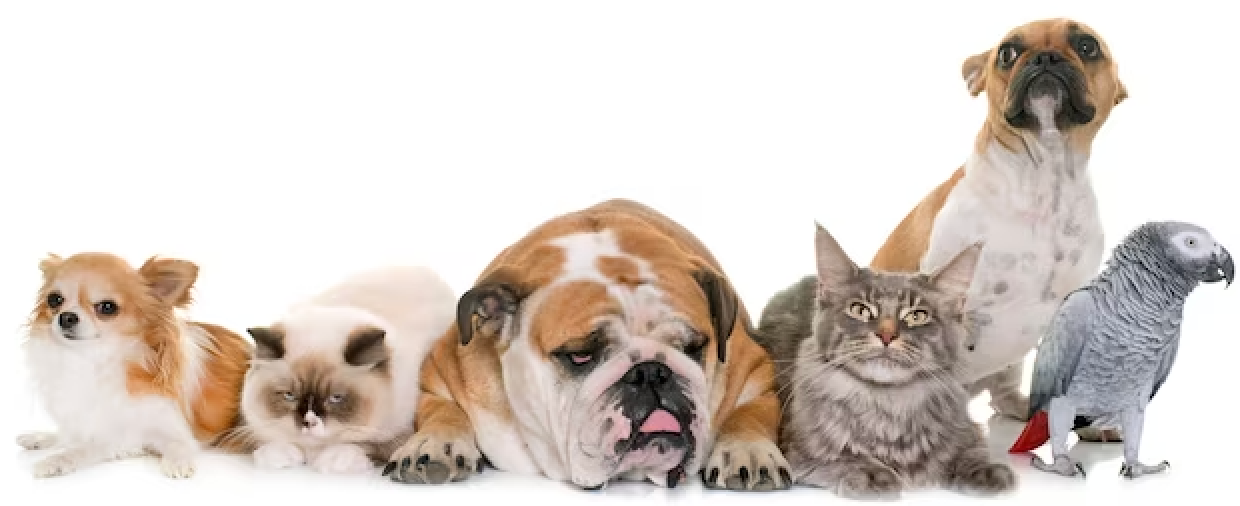Reasonable Accommodation

" A home is a place of comfort, care, and belonging"
We are happy to provide reasonable accommodations for Service Animals or Emotional Support Animals (ESAs) to support individuals with disabilities. These accommodations are available to those whose physical or mental impairments limit one or more major life activities. We’re committed to creating an inclusive and supportive environment for all our residents.
1) Instructions to obtain permission for an ESA or SERVICE ANIMAL
a) A Resident written request by mail or email for Accommodation submitted to the Manager.
b) A physician’s note on letterhead, including the complete name of the practice or agency, physical address, and contact information (i.e. telephone number and email address).
c) The full name and license number of the treating physician, psychologist, or other qualified healthcare provider.
d) The physician's note must be signed and dated by the treating provider.
e) A photo of the ESA animal, along with its breed, age, and name. (Read Section (3) for breed restrictions)
f) The Resident agrees to renew the prescription annually on letterhead, including the same information, confirming the Resident has a disability that requires an ESA.
g) A signed ESA Agreement executed by both the Resident and Lessor or Management.
2. Conditional Terms Between Lessee and Lessor
a) Indemnification:
- Lessee agrees to indemnify Lessor for damages or liabilities caused by the animal.
- Lessee accepts responsibility for damage to the premises or harm/injury to individuals, including building employees and vendors. b) Liability Waiver:
- Lessee absolves Lessor of liability if the animal escapes or is harmed during entry for repairs or inspections, whether with or without notice
b) Liability Waiver:
- Lessee absolves Lessor of liability if the animal escapes or is harmed during entry for repairs or inspections, whether with or without notice
c) Animal Stress and Behavioral Issues:
- Lessee holds Lessor harmless for anxiety or behavioral issues in the animal caused by noise or routine maintenance, including…….
- Hiding, trembling, or freezing in fear
- Vocalizing (e.g., barking, whining, meowing)
- Attempting to escape (scratching, bolting)
- Restlessness, pacing, panting, drooling, or dilated pupils
- Aggressive reactions (snapping, growling)
- Destructive behavior or loss of control (chewing, incontinence)
d) Pest Control:
- Lessee is responsible for controlling fleas, ticks, worms, mosquitos, vermin, cockroaches, flies, mites, and bedbugs.
e) Animal Limitations:
- Only one animal is permitted. No guest, visiting, or pet-sitting of additional animals is allowed.
f) Entry Protocols:
- Lessee must secure the animal upon receiving notice or granting permission for entry.
g) Animal Behavior Warranties:
- Lessee warrants the animal is quiet, housebroken, and safe around other animals and people.
h) Vaccination and Licensing:
- Lessee warrants the animal is vaccinated and licensed.
i) Routine Pet and Premises Care:
- Ensure regular veterinary care and vaccinations.
- Remove food from open sources to avoid attracting pests.
- Securely seal food bags and clean litter boxes frequently.
- Provide daily care (feeding, grooming, cleaning).
- Vacuum floors and wall heaters, dust ventilation areas, and reduce pet hair and odors.
j) HVAC Maintenance:
- Replace HVAC filters every two months to reduce pet hair accumulation.
k) Laundry Equipment Cleaning:
- Clean laundry equipment inside and out after each use to minimize animal hair transfer.
l) Liability Insurance:
- Lessee agrees to carry liability insurance if the animal is a dog or pig and provide proof to Lessor.
m) Specific Animal Guidelines:
- Cats: Must remain indoors or on a leash in common areas. Install and maintain a sanitary, odorless litter pan.
- Birds: Must remain caged at all times.
- Fish: Containers may not exceed 10 gallons without written authorization.
n) Default and Remedies:
- In case of default on any term, Lessee must remove the animal or vacate the premises within three days of written notice from Lessor.
o) Care of Abandoned Animals:
- At Lessee’s expense, Lessor may remove the animal from the premises and seek out professional care of the animal until claimed by the Lessee after remitting payment to Lessor for said care.
- After 14 days of non-claim, Lessor may surrender the animal to local animal welfare authorities.
Breed Restrictions
3. Some animal breeds are subject to property insurance guidelines that the Lessor must adhere to when owning or leasing property. These guidelines include restrictions on breeds such as Akitas, Cane Corsos, Chows, Pit Bulls, Presa Canarios (Canary Dogs), Rottweilers, Staffordshire Bull Terriers, Jindos, wolf hybrids, and exotic or farm animals. If your ESA is part of this group, you'll need to submit a certified, notarized letter confirming that the animal has no history of biting. This letter must be included with your application and provided before signing the ESA Addendum. The animal owner must ensure that the animal complies with local and state animal control laws and that it does not pose a danger or nuisance to the community.[1] HUD, Occupancy Requirements, 2-44(C), at 2-41 – 2-42.


